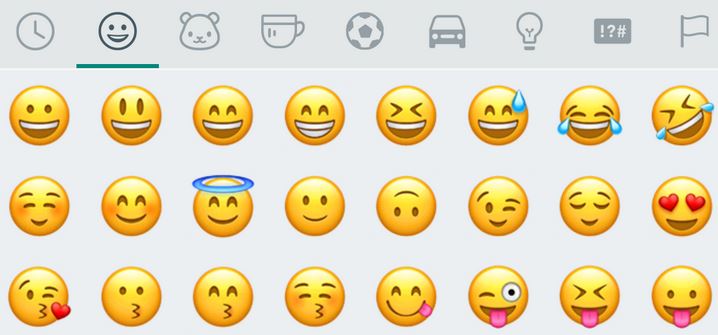
With the development of information technology, especially smart phones, the concise and interesting features of emojis are increasingly used in computer-mediated communication ( Gesselman et al., 2019 Beattie et al., 2020 Jones et al., 2020 Sweeney, 2020).

Generally speaking, an emoji is a small digital image or icon used to express an idea or emotion ( Ganster et al., 2012 Singh et al., 2019). Online social media frequently use specialized languages, such as abbreviations, hashtags, emoticons, and emojis as substitutes to compensate for the absence of non-verbal cues ( Fathiya, 2018 Fischer and Herbert, 2021). That is, emojis influenced interpersonal trust among acquaintances only if the level of propensity to trust, is low. The results suggested that the individual propensity to trust plays a moderate role in the relationship between emojis and online trust among acquaintances. Finally, we recruited 111 participants for Experiment 3 to explore the role of emojis on online trust among acquaintances. A joint analysis ( via ANOVA) of Experiments 1 and 2 illustrated that the type of emoji exerted a significant effect on college students’ online trust. The results indicated no significant differences between the experiment and control groups in terms of the influence of negative emojis ( ) on initial online trust using. Then, 74 college students were selected for Experiment 2. The results demonstrated that positive emoji ( ) improved the level of trust of trustors in the trust game, whereas that of the control group exerted no effect on the initial level of online trust among college students. A total of 62 college students were recruited for Experiment 1. Therefore, this study examines the effect of emojis on online interpersonal trust among college students through three experiments. 3Office of Human Resources, Central University of Finance and Economics, Beijing, ChinaĮmojis are increasingly used in online communication and expression, however, most previous studies have focused on describing this phenomenon, but less on how it affects interpersonal trust relationships.


2Business School, Beijing Normal University, Beijing, China.1School of Sociology and Psychology, Central University of Finance and Economics, Beijing, China.Mei Zhang 1, Shuheng Ding 1, Yining Liu 1, Hailong Li 1, Yanchun Zhu 2* and Chunlei Qin 3*


 0 kommentar(er)
0 kommentar(er)
